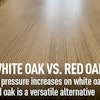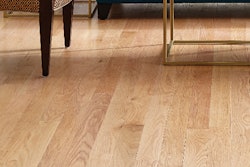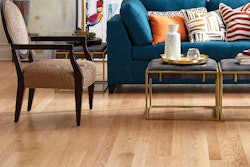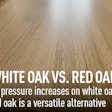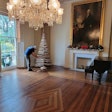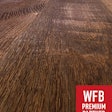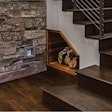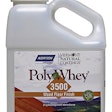While we are looking at legality-related issues, American sellers and buyers of American woods should make sure they bookmark this report. This is good for both sellers who want to enter the EU or other markets with legality laws in place, and also for buyers who want to use U.S. hardwoods in FSC controlled wood programs or other projects where a low risk of illegal material is important.
Prepared in 2008, what is often called "The Seneca Report" is one of the most important and thoughtful reviews of the U.S. hardwood industry and covers (in 250 pages) details on certification, legality, taxes and trade issues and much, much more. It is one of the key studies supporting the U.S. hardwood industry's statements regarding the low-risk nature of U.S. hardwoods. I would encourage buyers, sellers and producers to familiarize themselves with the information.
Since we were talking specifically about legality, I'll pull out some info on that issue. For those seeking evidence of likely legal nature of U.S. hardwoods, it provides a detailed analysis of all available statistics and reports (which unfortunately can be very limited state-to-state) and concluded that:
…then for hardwood alone, the value of stolen timber might be on the order of $12 million. Assuming also that the value of hardwood timber produced in the U.S. is approximately $4 billion, the value of stolen timber almost certainly represents less than one percent of the total.
Less than 1 percent of total value is very reassuring, but all the same, the other figure, 12 million, sounds like a lot when it's a piece of your pie. So does 1,600 cases a year. "A survey of law enforcement and forestry officials in the Appalachian region resulted in an estimate of 1,600 incidences in six states with timber valued at $4.4 million." And "in New York there occurs 'an estimated 300 cases per year with a timber value of $10,000 per case.'" So clearly there remains a risk of illegal material entering a U.S. hardwood supply chain, and if it happens to you, it could be a very expensive problem.
As discussed in previous posts, a great deal of illegally harvested U.S. timber is "stolen" accidentally. However the report also gives an example of a major deliberate timber theft scheme:
In September 2006, Robert Lee Parker of Rome, Ga., pleaded guilty to federal charges of conspiracy and interstate transportation of stolen goods. Parker had been the land resource manager for Berry College located in Northeast Georgia and was discovered to be selling timber from college lands for his own personal profit. For at least six years, Parker, who holds a forestry degree, had been allowing a timber company to harvest timber from college lands with proceeds being paid directly to him or to third parties for his benefit. Parker is serving five years in a federal prison and has liens against him totaling over $10 million in restitution and penalties.
The industry is fortunate that Mr. Parker was caught prior to Lacey's amendment in 2008, or every downstream customer of that timber material, from the mill to the homeowner, would have been liable for fines and confiscation of their timber products.
On the other hand, there was a recent violation in the U.S. as well. I will be very curious to see if a Lacey prosecution occurs, including if there will be actions against the timber companies that purchased the illegal wood. Certainly, it is further evidence that "Buy American" alone cannot constitute due care. Although we are fortunate that the U.S. timber is absolutely overwhelmingly legally harvested, deliberate theft and accidental theft do clearly occur.
The bottom line remains that having a due diligence program in place and asking some basic questions about your sourcing from any country is just common sense. Pick good companies to work with-don't rely on a country's data to cover you. Know who you're working with and pick responsible suppliers.













